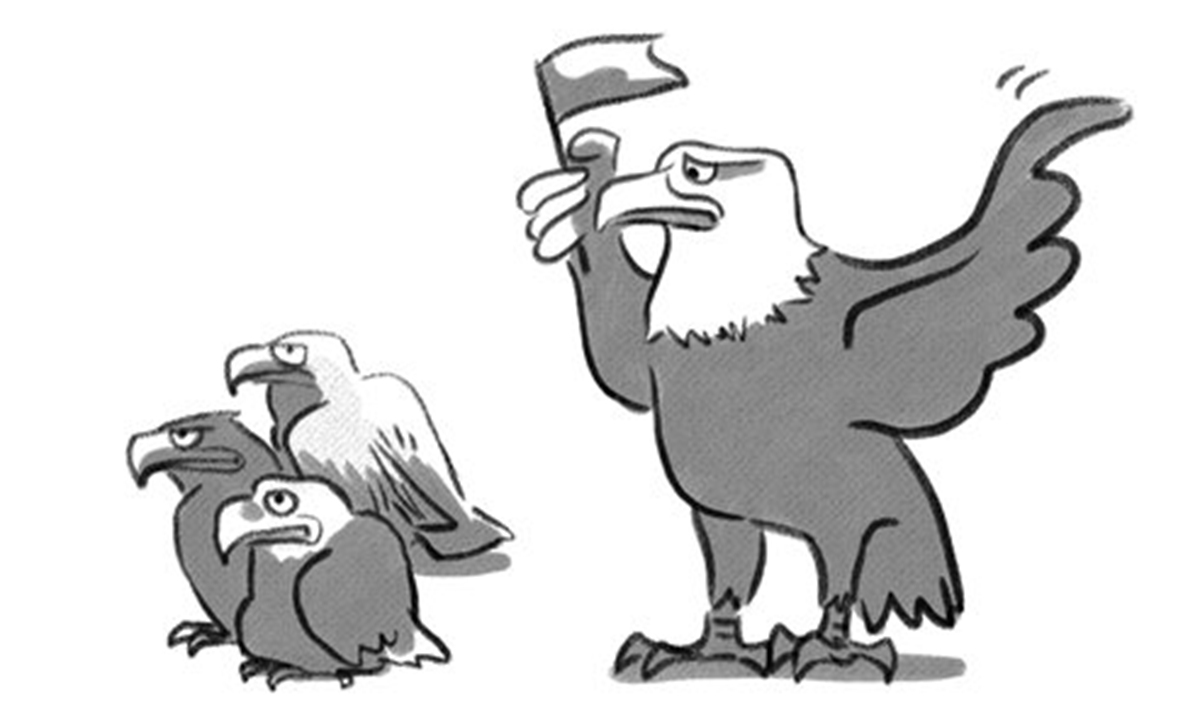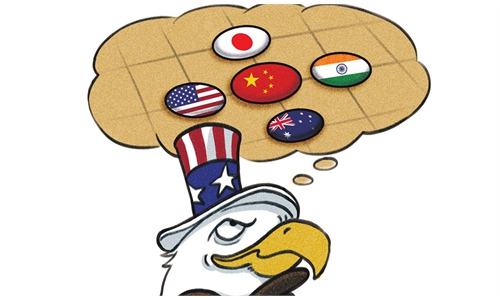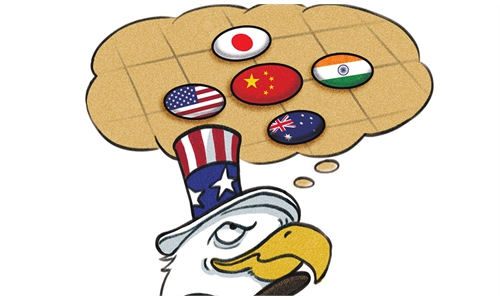
Illustration: Liu Rui/GT
US President Donald Trump presented the Legion of Merit (LOM) awards to Australian Prime Minister Scott Morrison, Indian Prime Minister Narendra Modi, and former Japanese Prime Minister Shinzo Abe on Tuesday. On behalf of them, ambassadors of the three countries in Washington accepted the medals from US National Security Advisor Robert O'Brien at the White House. Quite a few Indian media have called it "a top US honor."
As the US praised them for their roles in the Indo-Pacific affairs and global challenges, the award is in recognition of the three persons blindly and unquestioningly following Trump on ganging up on China.
The US has no real benefits to offer, but when it comes to awards and medals, you name it.
The US, Australia, Japan and India happen to be members of the QUAD, an informal security group, also known as the Quadrilateral Security Dialogue, which has become openly anti-China lately. Many observers thus tend to interpret the US move as giving credit for QUAD, or an attempt to promote QUAD. Some even argue the award is more like Trump setting up a monument for himself, hoping to show the world in his last days in the Oval Office that he has almost established an "Asian NATO," or wishing to be credited as the "inventor" or "father" of the Asian NATO.
Would a few medals really promote the founding of an Asian NATO? Hardly. The more efforts Washington makes to doing a public stunt, showing off its partnerships by awarding medals, the fewer solid interests the US could provide.
The four countries seem to be like-minded and united. But they are merely strange bedfellows with different calculations. Japan is pursuing to become a normal state with its armed forces being able to operate independently. It hopes to boost the process with the endorsement of the US. India is cooperating with the US in various fields, but is unsatisfied with Uncle Sam being too bossy as well as the US hegemonic vision in Indo-Pacific region. Australia wants to showcase its global status, and gain more support from the US by following the latter's footsteps closely.
Yet the US can in no way satisfy their needs. The US cannot redefine what Japan's Self-Defense Forces can or cannot do, or order the troops to carry out activities that go beyond Tokyo's pacifist constitution. The US attitude toward India has been contradictory. It is enthusiastic toward India in terms of geopolitics and security, but haggles over every ounce on economic and trade issues, such as revoking India's Generalized System of Preferences in 2019 and threatening India over its defense pact with Russia. When it comes to Australia, the US has pulled it into a geopolitical conflict which is supposed to have nothing to do with the land down under, without any strong measure to protect Australia's economic interests.
Apart from meaningless awards, the US cannot put forth any substantial support to its partners, not to mention bending over backward to help them. US performance and leadership amid the pandemic is clear to all. It has not yet carried out assistance to the UK, one of its closest allies, when the latter is so badly hit by a new highly infectious strain of the novel coronavirus.
Be it the possible shaping of an Asian NATO or maintaining alliances, concrete and tangible mutual benefits are needed, without which no country is that silly to blindly follow the US in the absence of considering the losses. It is not known how long the US-led alliances, which are mostly based on their shared values, can last. But when the losses rise, the answer will surface.
Some netizens sensed the awkwardness over the latest LOM presented by Trump. They argue it looks like three vassal states accepting an award from their overlord. But "Trump's been rejected by his own people, and the award is a bit embarrassing," as one netizen said.


